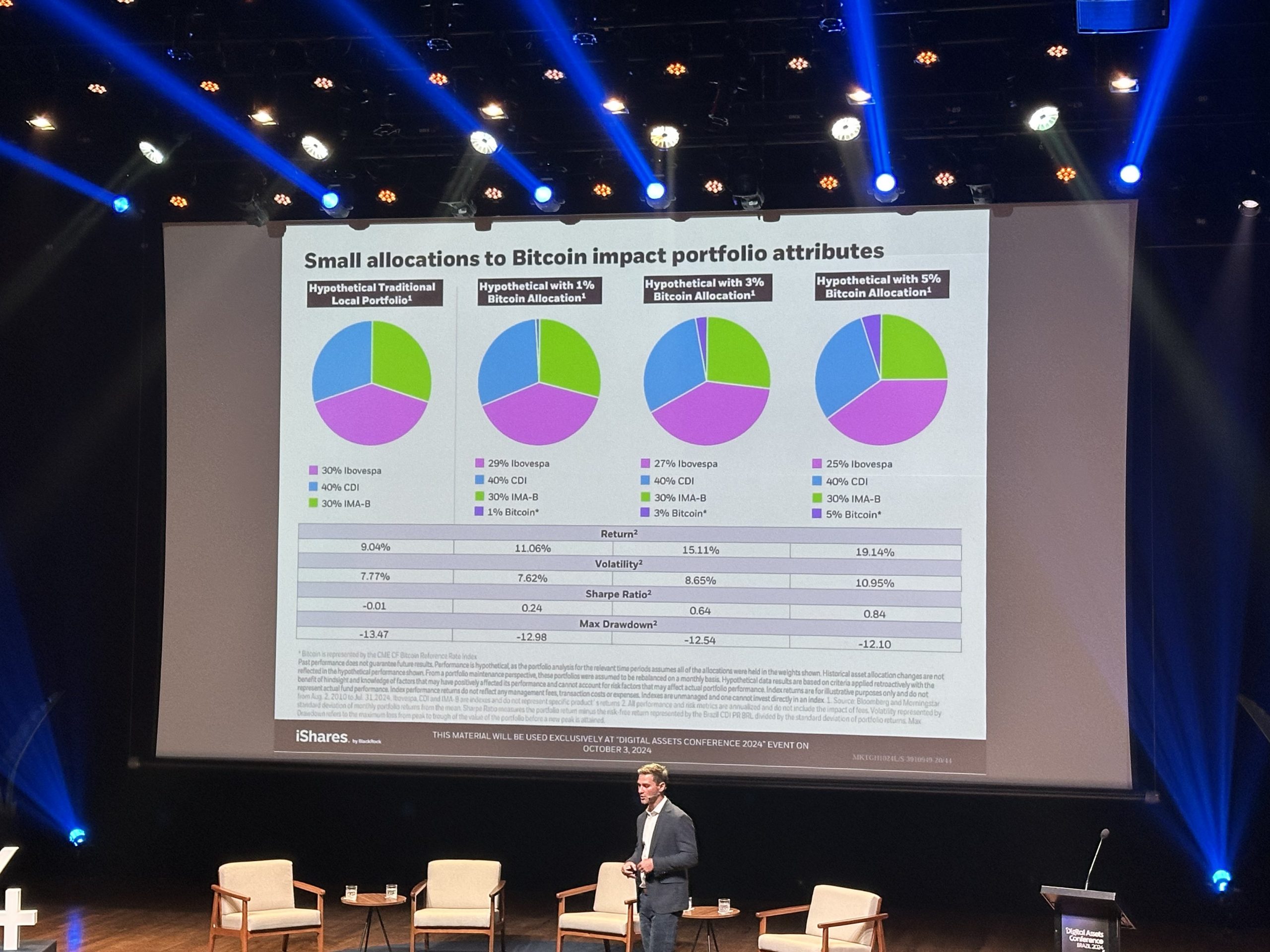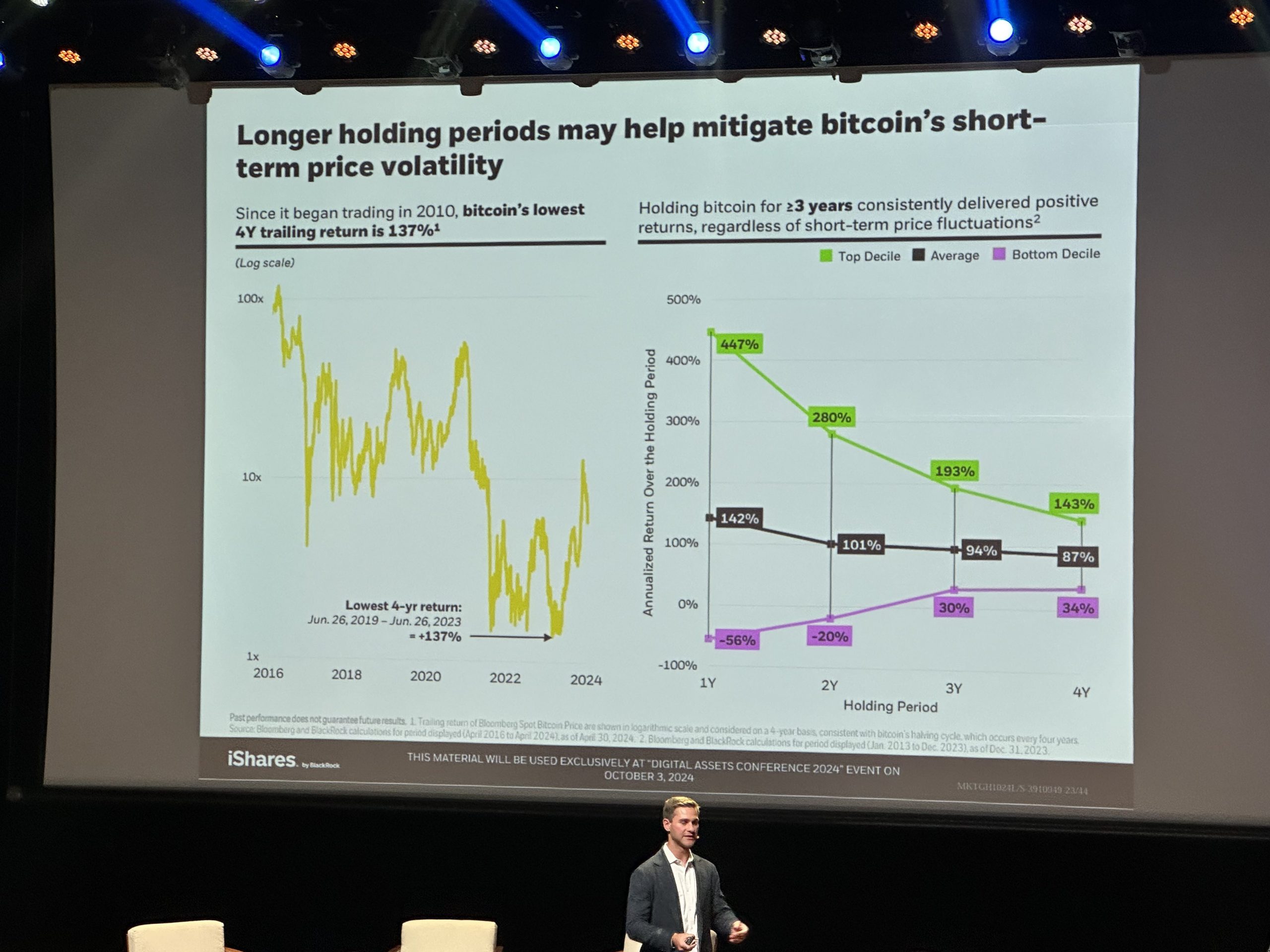Key Takeaways
- BlackRock data shows that a portfolio’s Bitcoin allocation can perform significantly better than traditional investments.
- BlackRock highlights Bitcoin’s role as a hedge against fiat currency declines.
Share this article
At today’s Digital Assets Conference, BlackRock revealed its latest insights into Bitcoin’s volatility and future performance, revealing that Bitcoin’s volatility has decreased significantly and will continue to decrease over time.
BREAKING NEWS: Bitcoin Volatility Has Declined and Will Continue to Fall – BLACKROCK pic.twitter.com/iCWafcyLyD
— Marty (@thinkingvols) October 3, 2024
BlackRock, the world’s largest asset manager, highlighted Bitcoin’s evolving role in the global financial ecosystem. Bitcoin’s volatility has been steadily decreasing, according to BlackRock, and this trend is expected to continue as adoption increases and the asset matures.
Data from BlackRock shows that adding Bitcoin to a portfolio improves risk-adjusted returns over multiple time periods. Portfolios with a 1%, 3%, or 5% Bitcoin allocation had higher returns over 1, 2, 5, and 10 years than traditional portfolios.


Bitcoin slightly increased volatility in this hypothetical portfolio, but the potential for higher returns outweighed the added risk. For example, a portfolio with a 5% allocation to Bitcoin achieved a return of 19.1% over the long term, significantly surpassing the 11% return of a traditional portfolio with no Bitcoin exposure.
BlackRock’s analysis also highlighted the importance of long-term holding in relation to Bitcoin’s volatility. According to the company, Bitcoin’s lowest return after four years is still an impressive 137%, and holding the asset for more than three years has consistently resulted in positive returns.


BlackRock also compared Bitcoin to gold and U.S. Treasury bonds, emphasizing its fixed supply, decentralized governance, and low correlation to traditional assets, positioning it as a hedge against declining trust in governments and fiat currencies.
Moreover, BlackRock noted that while Bitcoin’s volatility remains high, it has decreased as the asset matures. As a result of the analysis, Bitcoin showed a low correlation with gold (0.1) and S&P 500 (0.2), highlighting its role as an independent asset class.
Lastly, BlackRock highlighted Bitcoin as a hedge against the decline in the value of fiat currencies, especially the US dollar. They positioned Bitcoin as a hedge against inflation, emphasizing the decline in the value of the dollar since 1913. By offering a Bitcoin ETF, BlackRock expresses confidence in Bitcoin’s long-term value and growing role in financial markets.
Share this article

